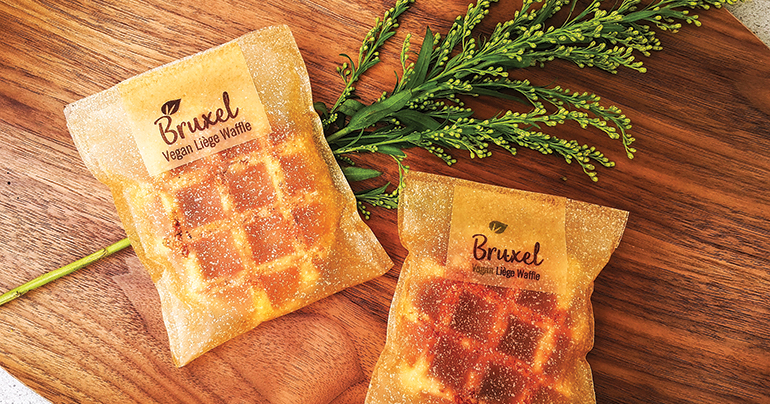
The next time an Indonesian junk food lover sinks his or her teeth into a burger, they might think twice about throwing away the plastic wrapper. After all, if it was produced by Evoware, there’s a reasonable chance the wrapper is more nutritious than the burger itself.
Using seaweed as a raw material, the Indonesian startup has created a plastic wrap that it says is entirely environmentally friendly – and edible.
“Plastics are contaminating everything – our air, our food and even our water. Recent studies [by Orb Media] said that drinking water [in Jakarta] is 76% contaminated by microplastics,” says Evoware co-founder David Christian.
Plastic is a particularly big problem in Indonesia, according to a 2015 study published in the journal Science, which found that the archipelagic nation is the world’s second-worst culprit, behind only China, in terms of contributing plastic waste to the ocean.
Evoware’s seaweed-based packaging dissolves in warm water, creating zero waste, and is almost completely odourless and tasteless. “Basically it’s not plastic, because we don’t use any petroleum-based [products] or plastics in it. It’s edible because it’s 100% made from seaweed,” Christian says.
The material is aimed at becoming the go-to for small sachets such as one-cup coffee packets and the seasoning packets found in instant noodles, which are currently difficult to recycle due to the presence of numerous materials that are tricky to separate. Single-use packaging for takeaway foods such as burgers and sandwiches are also a target.
Given Indonesia’s status along with China as “by far the largest seaweed producers” in the world, according to an article in the European Journal of Phycology, Evoware’s products have the potential for a second social impact. In 2014, the two countries each farmed more than 10m tonnes of seaweed, creating a vast oversupply for Indonesia that Christian hopes his company can help make a dent in – improving the livelihoods of farmers in the process.
“Maybe our products will be more expensive [than conventional plastics], even when we do mass production… because we still want to help the farmers,” he says. “We want a fair price. We don’t want to push the seaweed farmers so that they are selling us really cheap seaweed.”
The team only launched their edible packaging at the end of September, but they are already struggling to meet the high demand, particularly from outside of Indonesia, according to Christian. They are now focusing on building a bigger production facility and developing the versatility of the product beyond food and beverage packaging.
“The reaction has been great,” says Christian. “Right now we are still very new… We are hopeful. We want to replace plastics, but we need to do it [little by little], I think. That’s the long-term goal.”
This article was published in the February edition of Southeast Asia Globe magazine. For full access, subscribe here.

